Full name:
Jean Omer Marie Gabriel Monnet
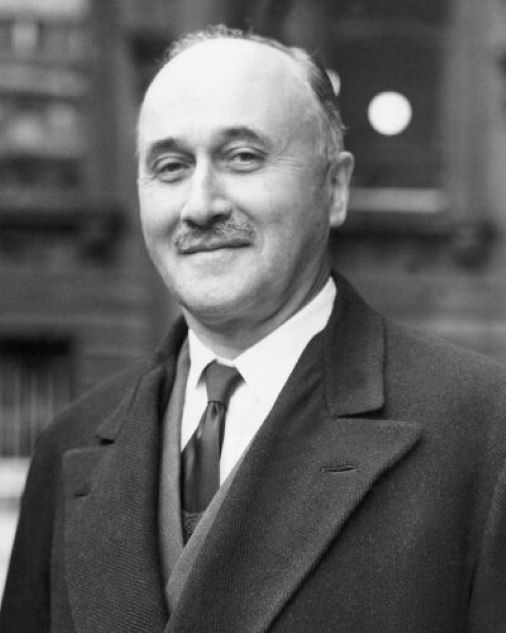
"The unifying force behind the birth of the European Union"
Jean Omer Marie Gabriel Monnet
9 November 1888, Cognac, Charente, France
16 March 1979 (aged 90), Bazoches-sur-Guyonne, France
- Jean Monnet
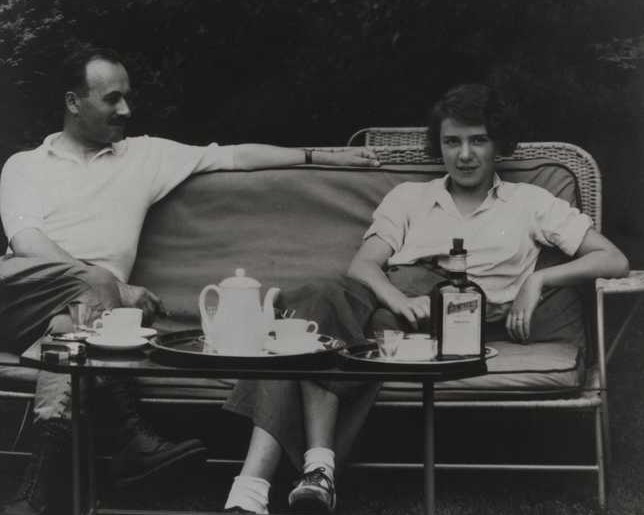
Jean Monnet and his wife, Silvia de Bondini, 1934
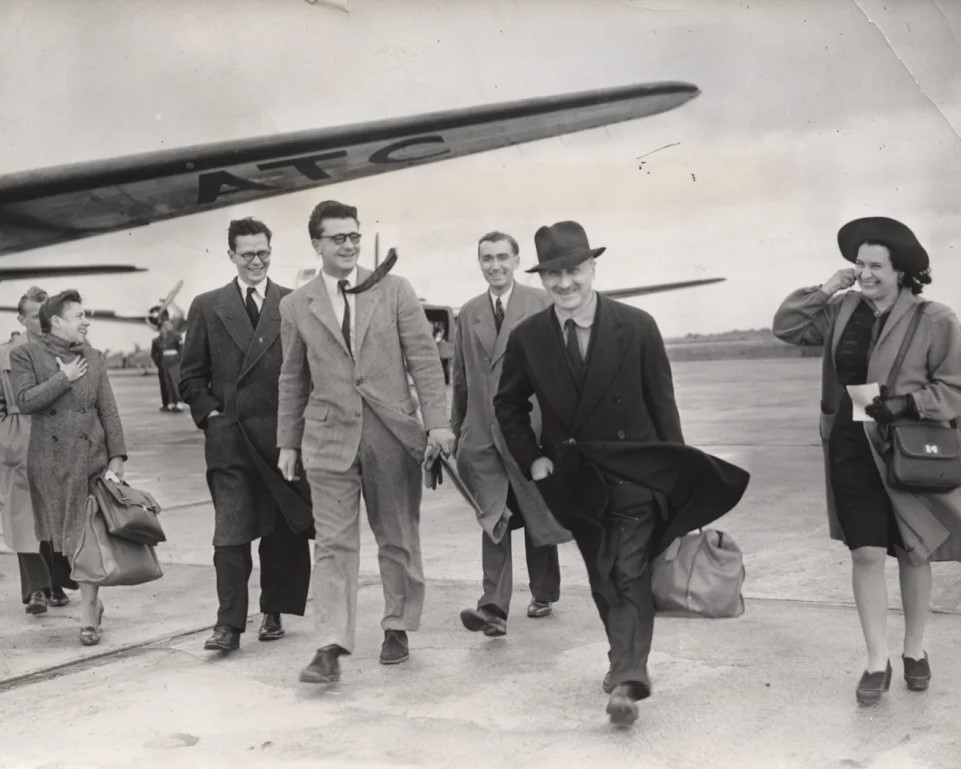
Jean Monnet arriving back from the United States, 1945
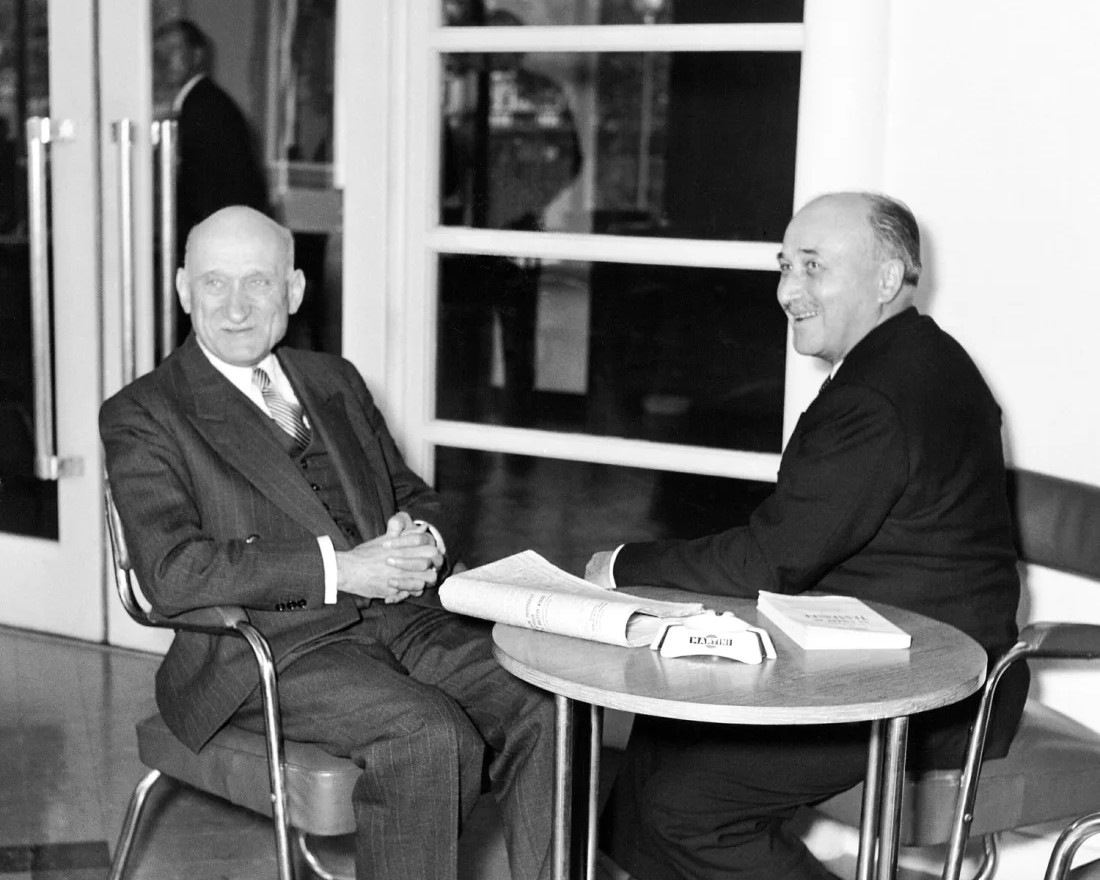
Jean Monnet and Robert Schuman in Strasbourg, 1950
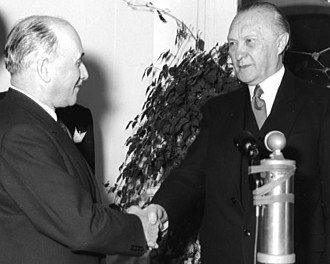
Monnet visiting Konrad Adenauer in Bonn, December 1953
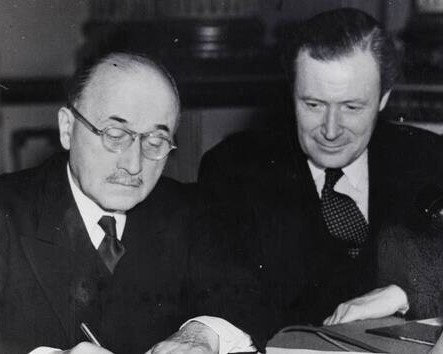
Monnet and the British Minister of Supply creating a Permanent Association Council between the ECSC and the UK, December, 1954
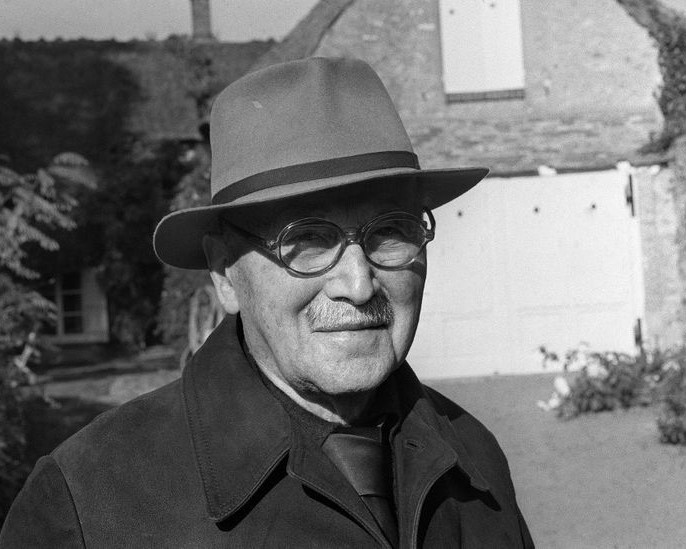
Jean Monnet when he retired from political life, 1975